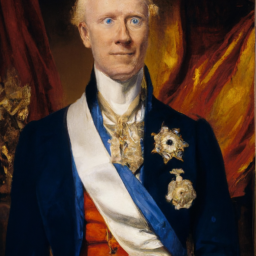Each year, the president pardons one or two turkeys. But how did the tradition start? Here's a lesson on the presidential pardoning.
John Adams, in the final months of his administration, became the first American president to live in the new executive mansion, now known as the White House. However, it was George Washington who set the precedent as the first president of the United States.
George Washington, born on February 22, 1732, in Westmoreland County, Virginia, played a crucial role in the American Revolution and the formation of the United States. On April 30, 1789, he was inaugurated as the first president, leading the nation through its early years.
Washington's presidency was marked by numerous challenges, including establishing a functioning government, dealing with international relations, and managing domestic affairs. Despite these difficulties, he laid the foundation for the presidency and set important precedents for future leaders.
As a member of the Federalist Party, Washington advocated for a strong central government and was instrumental in shaping the early structure of the United States. He played a key role in the Constitutional Convention, which resulted in the drafting of the United States Constitution.
One of Washington's most significant contributions was his Farewell Address, delivered in 1796. In this address, he warned against political factions, urged unity, and emphasized the importance of maintaining a strong military and avoiding entangling foreign alliances.
After serving two terms as president, Washington retired to his estate at Mount Vernon. He dedicated his post-presidential years to managing his plantation and overseeing various business ventures. Washington's decision to step down after two terms set an important precedent for future presidents.
George Washington's legacy extends beyond his presidency. He is revered as the "Father of His Country" and is widely respected for his leadership, integrity, and commitment to the principles of liberty and democracy. His image appears on the one-dollar bill and various monuments throughout the United States.
Despite facing challenges and criticism during his presidency, Washington's leadership and vision laid the groundwork for the success and stability of the United States. His contributions to the nation's early years continue to be celebrated and studied today.
In conclusion, George Washington's role as the first president of the United States was instrumental in shaping the nation's government and setting important precedents. His dedication to the principles of liberty, his leadership during the American Revolution, and his commitment to the success of the young nation leave a lasting legacy that continues to inspire generations.
